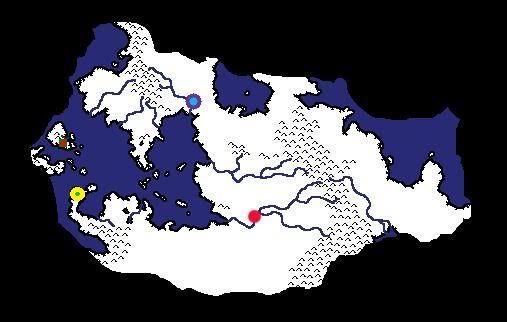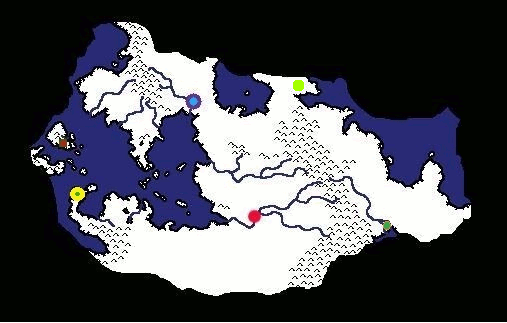Luckymoose
The World is Mine
tiffani
Welcome to tiffani. She is a world for you to fill with peoples of your own design and tell a collective story over the centuries. She isn't picky, but she shuns the lack of creative thought and will not be nice to those who are unoriginal outright.
To begin I will require the following template to be filled out, and I encourage cooperation with neighbors on making similar cultures so everything is icing on the cake when the machine begins to roll.
Culture/Player:
Player Nation Name:
Secondary Nation Names:
Cities: (in order of importance in the early years)
Description of Culture: (Give me a bit of everything in here. What the people look and act like, how they run their society, economy, etc. What their beliefs are and if they focus on war over building or some other comparison. You can be as detailed as you want, but for those who can't get the words on the page don't fret, if you give me enough to work with I'd be glad to help you fit in the world.)
Rules:
tiffani isn't stat heavy like most NESes. She prefers to be courted by the words of her companions rather than their calculations. Stories are important, they build history and flavor, and as such good stories will get bonuses. I will not say if I will award a bonus, or to the extremes of the bonus, but you will likely get some kind of nudge from them. For the rules that are in place here follows a simple explanation.
Stats will look like the following:
Nation/Player
Culture/Influence
Economy: Income (Treasury)(Debt)
Manpower:
Army:
Navy:
Background:
Culture and Influence: this concept is directly stolen from N3S and is quite simple. Culture defines the culture that your nation is apart of, while Influence is listed as the power your nation/culture has on surrounding nation/cultures. It allows the player to know if they are influencing others or open to influence and how to play accordingly.
Economy: another simple concept and not really defined by any real calculations. I balance the economies based on what I think is correct, I am not perfect, but what I say is usually final unless some stat error occurs. It will be a solid gold amount, minus the upkeep from your army and navy or other drain on resources. Spending isn't so closed minded but be realistic here. You can invest a few hundred gold into improving agricultural technology and this might give you returns to your income, but not always. Investing isn't always going to improve your economy so don't cry to me about it. You can bank what you don't use now and use it later or you can spend into debt, which will eventually catch up to you and cause horrible things to happen. :]
Military Prices:
3 to recruit 1 professional soldier
2 to maintain a professional soldier
0 to recruit militia
1 to maintain 5 militia
10 to build a ship
10 to maintain a ship
Roughly .25 to .5 gold are needed to support your troops if they are fighting outside of your borders, depending on the overall size of the force (bigger means slightly more costly per troop) and the terrain and quality of supply routes on the route you are traversing.
Domestic Prices:
Don't bother with small investments, if you want serious changes to your economy it will take larger chunks of change.
500g should be enough in most cases to boost your agriculture/mining/etc to aid give you small boosts to income. Larger nations will need larger investments.
Gold can be spent in smaller amounts for other things like being a narcissist and building statues of yourself or bribing people off from assassinating you. When in doubt ask me.
Manpower: this is the number of men you can feasibly support raising into soldiers, even if you have a mighty economy you might not have the men to make that large army you've always dreamed of. It will change overtime but will remain around the same level for long periods of time making sure to keep your military in check. When you demobilize your manpower goes back up. Lack of manpower for long periods will cause economic troubles.
Army and Navy: the military isn't very complex of an idea. You raise troops and march somewhere. Quality isn't going to be a stat to track in this NES, but there will be some benefits to players who have warrior societies in this aspect. When it comes down to it the stories and orders of the player will be the final quality of the military.
Background: it's yo history dawg. Or as much of it as I've decided to put in at any given moment. It sums up yo stuff mang.















